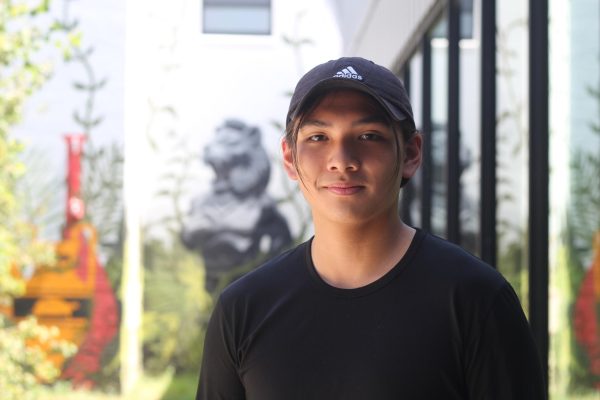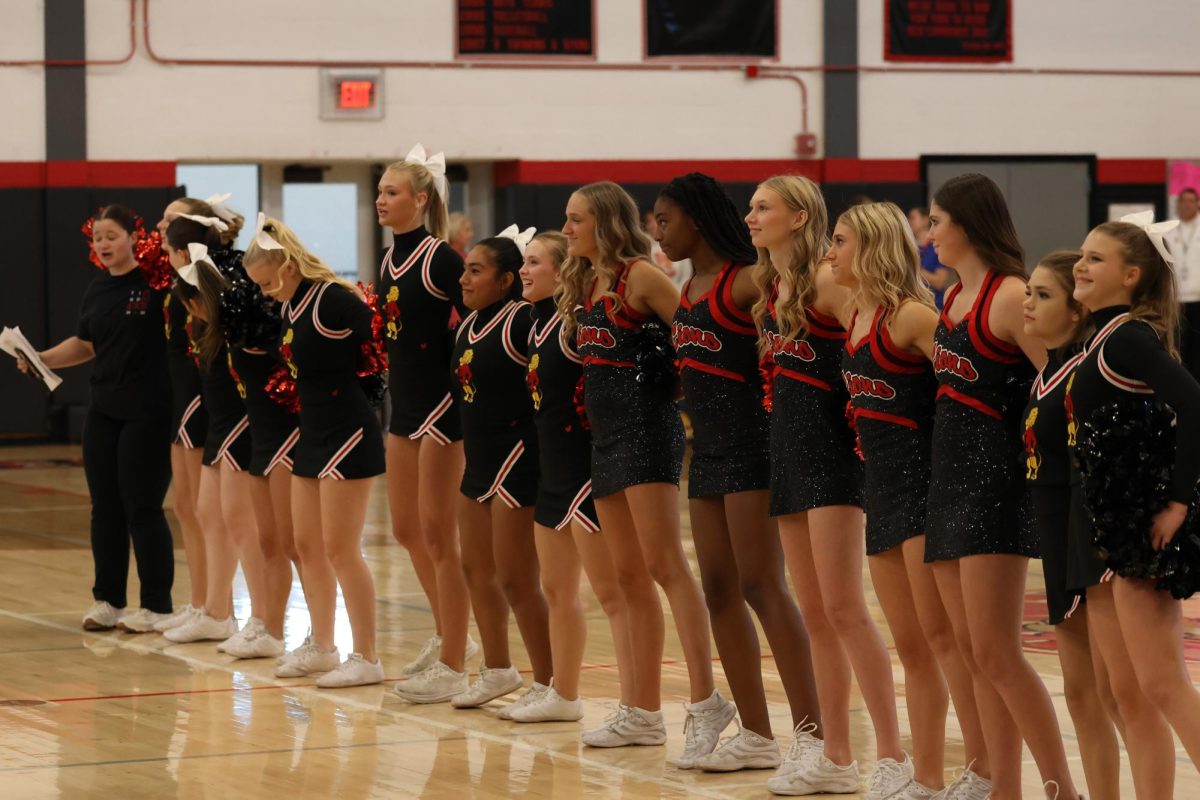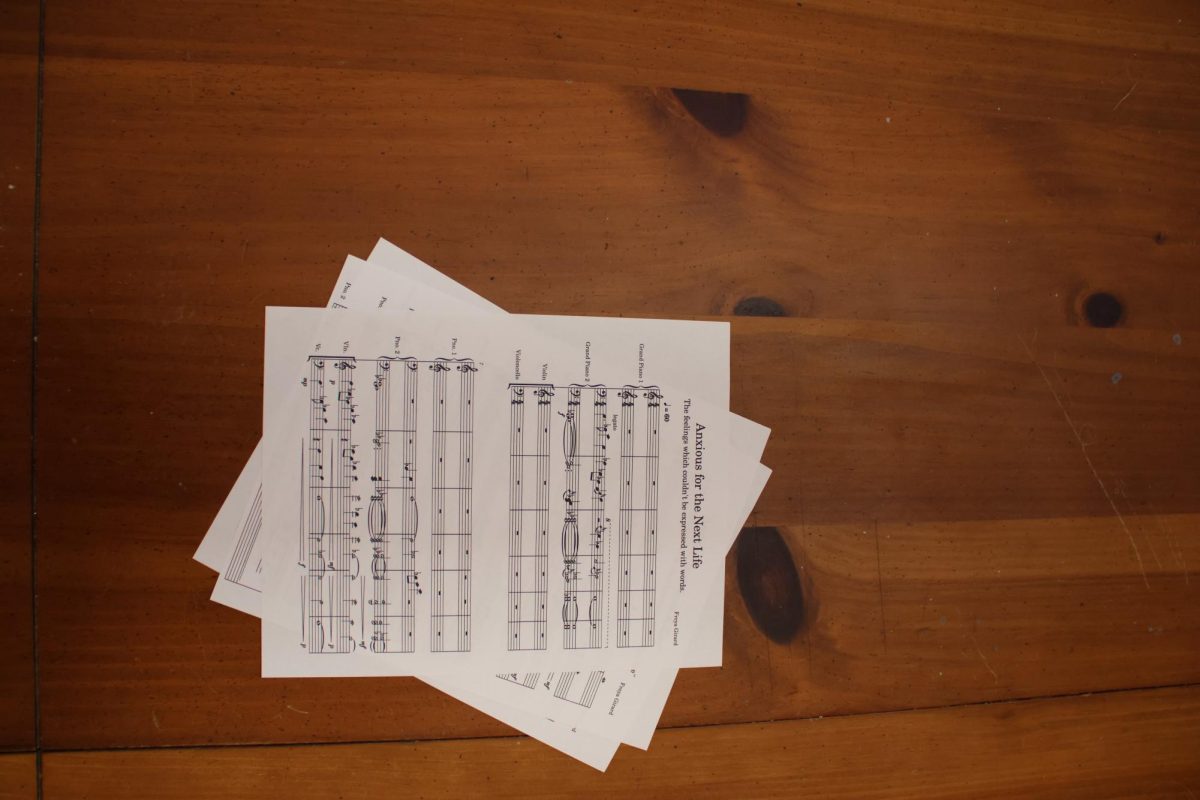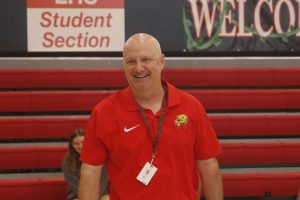Lawrence High science teacher travels to Ghana for exchange program
Environmental science teacher Lisa Ball participated in Fulbright scholarship program abroad
April 11, 2023
Despite decades-old textbooks and deteriorating classrooms, love for learning in the West African country of Ghana is unshakable. Environmental science teacher Lisa Ball embodies this positive mindset after participating in a trip to Ghana through the prestigious Fulbright program.
Ball teaches Environmental Sciences, where her reputation for kindness is extenuated by her students.
”If you have missing work or anything, she gives you like an extension and she kind of works with you, like with your learning style and stuff like that,” junior Seenane Brewer said.
Along with the classes she teaches, Ball also sponsors Environmental Club.
“She’s very adamant that it is student-led, but she is always willing to assist and helps us brainstorm all
kinds of fun activities for everybody,” said junior Lauren Seybold, Environmental Club co-president.
Ball has had a lot to share with her students and club members since taking part in the Fulbright Teacher Exchange Program.
“There are lots of different kinds of Fulbright programs, but they’re all funded by the US Department of State and they have programs for researchers, programs for teachers, programs for students,” Ball said. “But the idea is to get Americans out into other countries and act kind of like ambassadors to promote world peace and understanding between different countries”.
Before Ball left, she had had students complete more than 100 postcards to share while she was in Ghana.
“I was really happy that we wrote letters and I took letters to the kids and then they wrote back because now my kids are in contact with them and they’re learning about our differences, but they’re learning how much we actually have in common,” Ball said.
Ball kept LHS students informed of her travels through a blog about her trip. She described an early visit to a castle in the former capital, Cape Coast, that was seized by the British and used in the transatlantic slave trade.
“Touring the castle was very emotional for me,” Ball wrote on her blog. “I felt physically ill when we entered the dungeon areas, thinking of the tragic injustices that had taken place in this very spot. I am still struggling to process everything I saw and heard at the castle.”
But it was Ball’s first visit to a school in Ghana that connected her with the daily job, even if it looked different.
“Just looking at the pictures still kind of stirs my emotions because you walk in and you look at the environment that those children are in, and none of us would want our family members to be in those conditions,” she said. “The roofs were caving in, there was mold everywhere, the chairs were broken, everything looked really old, stained, and used.”
These visits allowed Ball to approach the learning process in a different way.
“I started to understand during that visit that sometimes that’s not what matters,” she said. “Even though I wish they had better learning conditions that didn’t stop them from the learning process, and they were all still really happy to be there and learning going through the whole process.”
Ball also visited a high school, called a senior high school in Ghana, noting the differences between it and the first school she saw.
“The school is very different from the one I visited a few days ago,” she wrote on her blog. “This school, Anglican Senior High School, has a strong academic reputation so it can be hard for students to get in.”
This school, despite its reputation, still had its challenges.
“We were able to use one of the science labs and our host teacher made special arrangements for a projector and screen to be brought in and we met in a science lab,” she said. “Even in this prestigious school, teaching with a projector is not the norm,” Ball said.
During part of her trip, Ball stayed with a host teacher, whose house was unfinished, even being utilized as a school from time to time.
“When we were touring it, we noticed that there were some children’s posters on the wall and there was a merry-go-round out front,” Ball said. “We asked him about it and he said, ‘Oh yeah, my kid’s school, we had some problems with the building, so we just let them come and have school in our unfinished house. If we lost our power at LHS for half a day, we’d probably shut down. We’d just feel like we can’t operate without those things like power and water, and they just make do.”
Through all these school visits and activities, Ball said she would never forget the willingness of students to learn.
“The love of learning that I saw in the kids really made a huge impression on me because they all knew that education is their way out of poverty and to a better life,” she said. “They were devoted to it even though they had so few resources. That really stuck with me and just how resilient they are.”
Near the end of her trip, Ball shared postcards from LHS students with the Kumasi Anglican Senior High School students in Kumasi.
“The students at this school were incredibly excited to see us, some of them even jumping and screaming in anticipation as we were meeting in the courtyard before touring classrooms,” Ball said.
On her final day at that school, Ball said goodbye to a few of the students she had worked with during the trip.
“It was a bittersweet moment because we felt like there was still so much we would like to learn from and to share with these dedicated scholars and teachers,” Ball said.
She would visit one more school, Brainbirds Academy, before wrapping up her trip.
“Brainbirds was so much fun to visit”, she said. “The resources were much nicer and more abundant. The classes were smaller and more interactive.”
The final day in Ghana began with a debriefing meeting and included last-minute shopping and time by the pool.
“Ghana will forever be in my heart and on my mind,” Ball reflected on her blog. “I dream that the classroom connection seed that we planted will bloom and grow. I want this to be just the beginning, rather than the end…”















